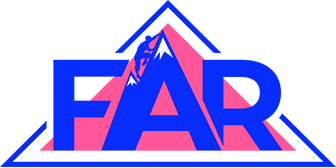Cocaine addiction can have devastating consequences for users and their families. From cardiovascular and neurological side effects to depression and anxiety, physical health, mental health, relationships, and daily life are all adversely affected by cocaine abuse.
If you’d like to learn more about the side effects of cocaine and find out about potential treatment options, we’re here to help. In this guide, we’ll provide information about why cocaine is addictive and how it changes the body. We’ll also explain how users can find effective treatment at Focused Addiction Recovery’s cocaine addiction rehab center in Wallace, North Carolina.
What Is
Cocaine?
Cocaine is a highly addictive stimulant. Initially, it was derived from the leaves of coca plants in South America. Doctors used certain forms of purified cocaine to provide pain relief for their patients in the early 1900s.
Today, cocaine is a Schedule II drug that comes in two forms. The water-soluble form of cocaine is a hydrochloride salt. It is a powder, and users take it by snorting or by injection. The water-insoluble cocaine base form, sometimes known as freebase, is made by processing cocaine with ammonia or baking soda. After mixing the freebase with water, the substance is heated to remove the hydrochloride. Users smoke this type of cocaine.
How Common Is
Cocaine Abuse?
According to the 2020 National Survey on Drug Use and Health, 1.9% of Americans (approximately 5.2 million people) reported that they had used cocaine in the previous 12 months. The same survey found that 0.5% of Americans (roughly 1.3 million people) had a cocaine use disorder.
The CDC WONDER database estimates that there were 19,447 deaths from cocaine overdoses in 2020.
How Does Cocaine Affect the Body?
When a person uses cocaine, the drug binds to dopamine transporters in the brain. This causes a buildup of dopamine in the brain’s synapses. As dopamine accumulates, one feels a sense of euphoria. Typically, this occurs immediately after taking cocaine.
How Is
Cocaine Addictive?
Cocaine causes long-term changes in brain function, which can result in addiction. Alterations in glutamate release and levels have been observed. Glutamate fluctuations adversely impact the brain’s reward pathways.
In addition, cocaine changes how the brain responds to stress. Studies suggest that long-term cocaine use may elevate a person’s levels of certain stress hormones, increasing sensitivity to the drug. Cocaine can reduce the functioning of the orbitofrontal cortex, and this reduction is associated with poor decision-making, lack of self-insight, and other limitations that are commonly seen in people with cocaine use disorders.
What Are the Side
Effects of Cocaine?
Even if cocaine is only taken once in a small amount, side effects can occur. As cocaine use increases, the likelihood of severe complications also increases.
With short-term use, cocaine produces feelings of being mentally alert and euphoric. Someone who has used cocaine may be very talkative, and they could have lots of energy. In addition, they might experience hypersensitivity to sound and touch and have a reduced need for sleep or food.
Physiologically, short-term cocaine use causes dilated pupils and constricted blood vessels. It increases a person’s heart rate and blood pressure. If taken in large amounts, it can lead to anxiety, paranoia, tremors, muscle twitches, and vertigo. Heart attacks, heart rhythm abnormalities, seizures, strokes, abdominal pain, and nausea may occur.
As the brain is repeatedly exposed to cocaine, tolerance could develop. If this happens, users may find that they need to take cocaine more frequently to produce the same sense of euphoria. Larger doses may be required for the user to achieve the same amount of pleasure that he or she previously had with smaller doses. Users could experience sensitization at the same time. When sensitization occurs, anxiety, seizures, and other side effects could develop after taking smaller amounts of cocaine than usual.
Loss of appetite is commonly observed in regular cocaine users, and this may result in significant weight loss and malnourishment. Cocaine reduces blood flow inside the gastrointestinal tract, and users could experience gastrointestinal tears and ulcerations.
Over time, users who snort cocaine may notice nosebleeds and swallowing difficulties. The voice may become hoarse, and the nasal septum might become chronically inflamed, leading to a runny nose. Lung damage occurs when cocaine is smoked, and this worsens asthma symptoms. Injecting cocaine increases the risk of HIV, hepatitis C, and allergic reactions.
Cocaine can be especially harmful to cardiovascular and neurological function. Chest pain is particularly common with long-term cocaine use, and users could have aortic ruptures. The heart muscle may become inflamed, and it might become more difficult for the heart to contract.
Neurologically, long-term cocaine use makes it difficult to concentrate and impairs motor function, memory, and impulse control. In some cases, it may lead to bleeding inside the brain, and it could create bulges in the brain’s blood vessels. People who have used cocaine for many years are at an increased risk of strokes, seizures, and Parkinson’s disease.
What Symptoms Are Associated With Cocaine Withdrawal?
- Cravings for cocaine
- Lethargy
- Irritability
- Anxiety
- Depression
- Poor concentration
- Sleep disturbances
Why Is Self-Detoxing From
Cocaine Not Recommended?
Cocaine use disorders change the brain, and they involve a combination of social and environmental factors. For some people, cocaine withdrawal can cause psychosis, paranoia, suicidal thoughts, or severe depression. In addition, almost 70% of cocaine users are likely to use cocaine in combination with other drugs. This complicates the treatment process, and it could increase the risk of relapse.
If a cocaine user tries to detox alone, he or she could be at risk of medical or mental health complications. Without appropriate treatment and support, it is much harder to address the underlying causes of a person’s cocaine use disorder, and this makes it much harder to stay sober.
What Treatment Options Are Available
At A Cocaine Addiction Rehab?
Treatment for cocaine use can take place in outpatient or residential settings. Outpatient care is the most frequently recommended treatment option. If a person with cocaine use disorder also has other substance use disorders, mental health conditions, or physical health concerns, residential (inpatient) treatment may be necessary.
Currently, there are no approved medications for the treatment of cocaine use disorder. Treatment options include counseling and behavioral modification. Contingency management techniques, cognitive-behavioral therapy, and the matrix model of abstinence-based therapy are some of the treatment techniques that are routinely used to treat cocaine use disorders.
This form of treatment uses motivational incentives to encourage users to abstain from cocaine and other drugs. Research shows that contingency management is particularly effective for cocaine users who are trying to achieve abstinence for the first time. It also helps patients stay in treatment programs.
To participate in contingency management, users must take regular drug tests. If users test negative for drugs, they receive points. The points are exchanged for different types of incentives. Gift cards, movie tickets, and clothing are some of the most popular incentives.
Cognitive-behavioral therapy (CBT) is delivered in individual or group settings. With this form of therapy, clients learn to identify the thoughts and feelings that have acted as triggers for their past drug use. Throughout several sessions, cognitive behavioral therapists teach their clients to develop healthy ways to cope with triggering thoughts and feelings. For example, they may learn to use mindfulness and relaxation techniques, and they might also learn to reframe their thoughts and avoid situations that could act as triggers.
Where Can I Find a Treatment Center for Cocaine Use Disorders?
To find a treatment center for cocaine use disorders and other substance use conditions, you may want to start by visiting a doctor. Physicians can help you learn about the treatment facilities that may be able to provide the most effective care for your overall mental and physical health. In addition, they may be able to assist you with finding treatment centers that work with your health insurance. They can recommend facilities that accept uninsured patients.
If you don’t feel comfortable seeing a doctor, local substance use support groups may be able to provide lists of treatment centers that could meet your needs. You can also find information about outpatient and residential treatment options on the Substance Abuse and Mental Health Services Administration’s website.
Cocaine Addiction Treatment at
Focused Addiction Recovery
Located in Wallace, North Carolina, Focused Addiction Recovery is a treatment center that uses evidence-based therapies and personalized care plans. The environment at the facility is welcoming and supportive, and treatments are adapted to fit the needs and comfort levels of individual clients.
Focused Addiction Recovery has been treating clients for over 20 years, and they provide a wide range of services to address the complex and co-occurring conditions that may accompany cocaine use disorders. The center provides medical detox, dual diagnosis, partial hospitalization, and outpatient care. The facility also has sober living options and relapse prevention programs to support clients after they achieve sobriety.
Cognitive-behavioral therapy and dialectical behavioral therapy (DBT) are a few of the therapies that are available at Focused Addiction Recovery. Clients can participate in individual, group, and family therapy sessions as well.
We Can
Help You Recover
If you’re looking for cocaine addiction rehab options, contact us at Focused Addiction Recovery. Our compassionate, experienced staff members can provide more information about our programs and fees. At Focused Addiction Recovery in NC, we are honored to support you on your journey to sobriety.
https://nida.nih.gov/publications/research-reports/cocaine/what-scope-cocaine-use-in-united-states
https://www.samhsa.gov/data/release/2020-national-survey-drug-use-and-health-nsduh-releases
https://wonder.cdc.gov/ucd-icd10.html
https://nida.nih.gov/publications/research-reports/cocaine/how-does-cocaine-produce-its-effects
https://nida.nih.gov/publications/research-reports/cocaine/what-are-long-term-effects-cocaine-use
https://drugpolicy.org/drug-facts/cocaine/withdrawal-symptoms
https://nida.nih.gov/publications/research-reports/cocaine/what-treatments-are-effective-cocaine-abusers
https://drugpolicy.org/drug-facts/cocaine/treatment-options-cocaine-addiction

